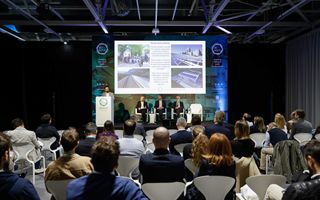(Finance) – “Theme of digitalisation in the process of decarbonisation of real estate. They are certainly two elements of a paradigm that cannot be deferred. We at JLL believe and invest heavily in this union, where every digitalisation process must be supported in some way by the digital element, an element that in some way becomes the driving force for any efficiency improvement intervention”. Thus Simona D’OcaHead of Sustainability, during the REbuild event which took place this week in Riva del Garda.
“Create a baseline, create the possibility of giving an ex ante and ex post response, therefore also generating certain values for improvement of theenergy efficiencyelements also to support not only the ESG pillar E, but also the social and governance pillar, therefore for an increase in comfort he was born in well being of users. So certainly a preponderant, overwhelming element that will become part of the paradigm of decarbonisation more and more, in parallel with an ever greater awareness of how this digital technology is used and integrated”, he added.
“In this union digitalisation-decarbonisation we can then insert all the elements that support the efficiency of the air conditioning and cooling systems, but also functional elements for the liveability and well-being of the spaces – he continued –. I am referring, for example, to integrated systems for comfort control, rather than space management systems and the control of plant systems, based for example on occupancy. We increasingly see how the digital environment is an environment that supports users and is also an environment that is increasingly requested by occupiers, who therefore in some way also create a demand for increasingly highly functional and highly technological spaces.”
“L’artificial intelligence – concluded D’Oca –, also according to our internal research by JLL, which is an outlook on the penetration of technology in the real estate sector, it remains the number one technology. It is the technology that most creates challenging opportunities, but certainly with the greatest expected result. It is a technology that will be able to bring together the flow of data that already largely exists in buildings, but which must somehow be valorised, synthesized and re-proposed according to the logic of augmented intelligence. AI, artificial intelligence, certainly remains among the most promising technologies for supporting decarbonization through digitalization.”
